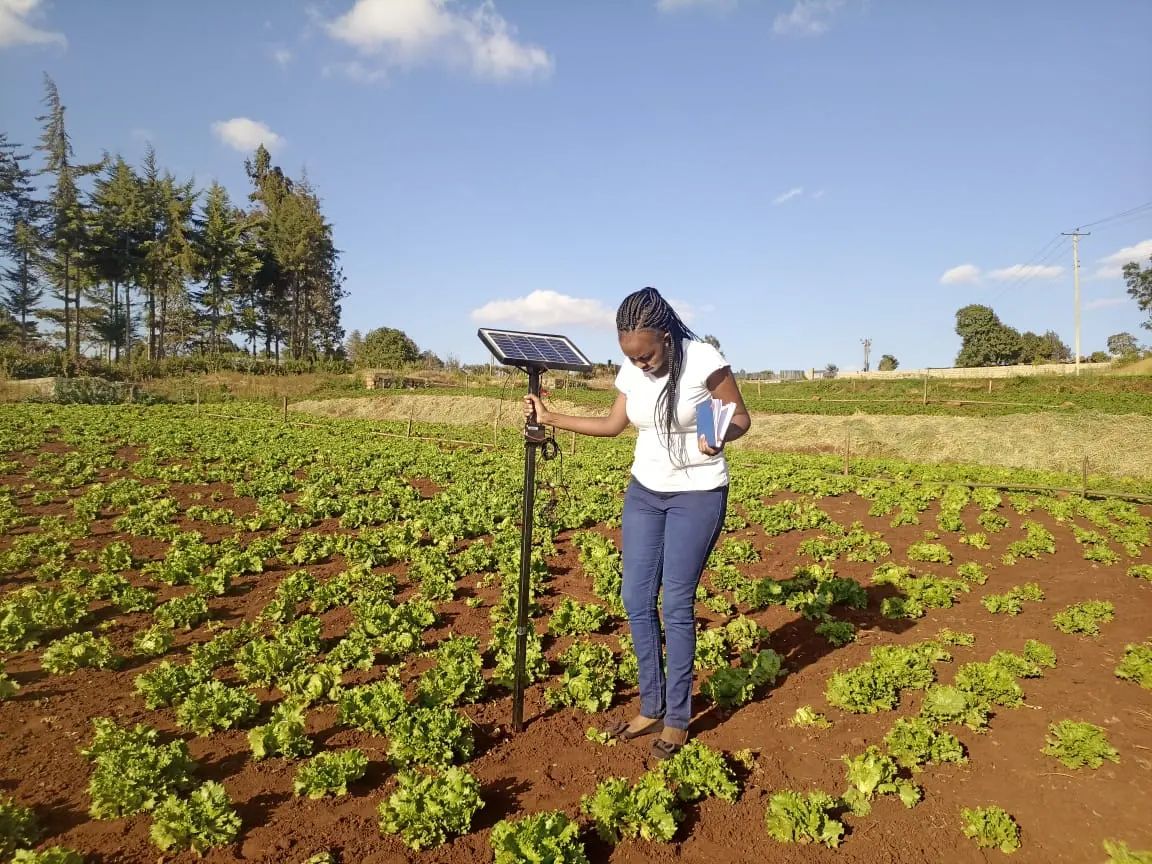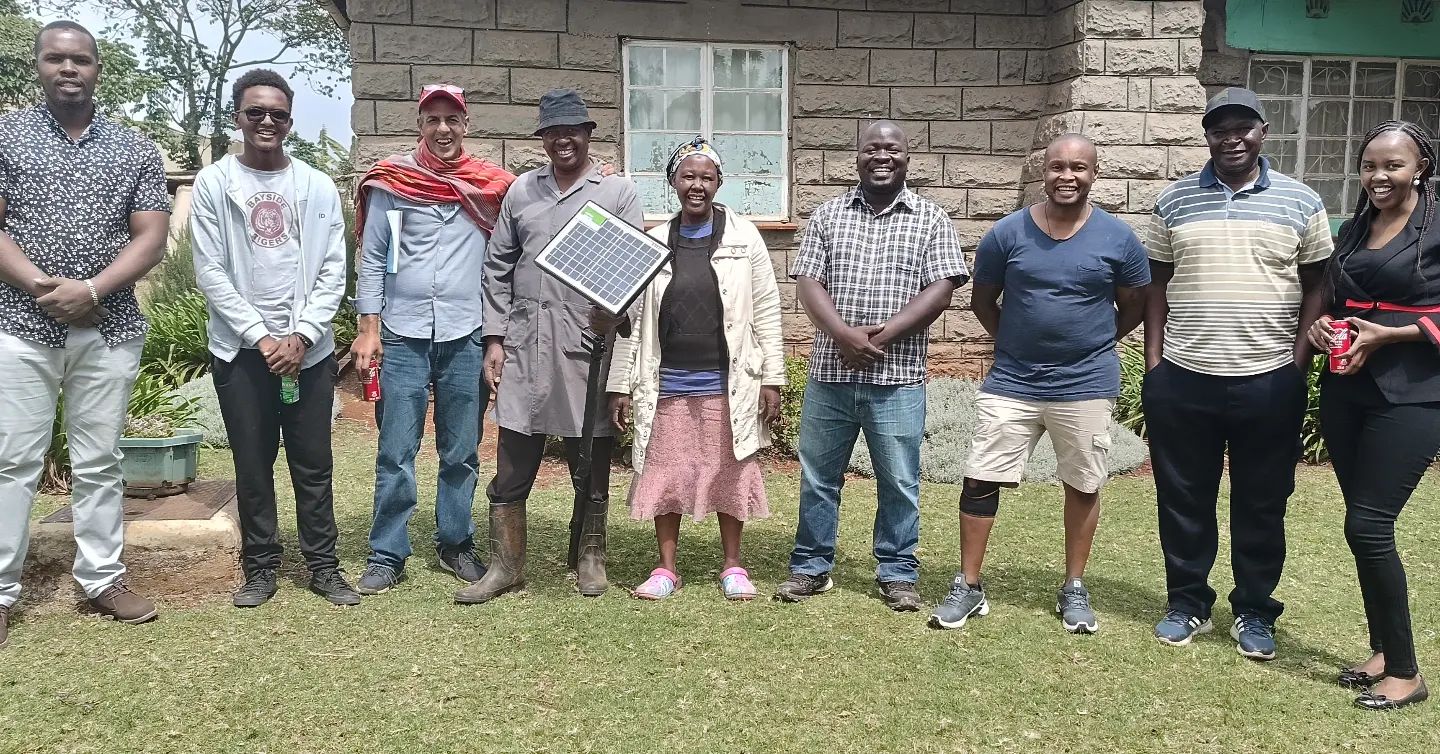Empowering Farmers with Data: AgriTech Analytics’ Impact on Smallholder Agriculture
S
ixty five percent of productive land in Africa contains degraded soil, a crucial issue facing small-scale farmers. Furthermore, most of these African small-scale farmers rely on unpredictable rain patterns to grow their crops because of the impacts of climate change leading and inadequate access to water or alternative water sources. Both the limited access to water sources and soil degradation have drastic implications for small-scale farmers leading to crop losses, unstable incomes, and food insecurity.
When Maryanne Gichanga, the founder of AgriTech Analytics, was growing up, their two-hectare farm sustained her family’s needs ranging from education to medical care. However, today the same farm cannot sustain her parents alone. This, together with the realization that 7.5 million small-scale farmers experience a similar predicament, was enough reason for 33-year-old Maryanne to start searching for a solution.
The solutions and business based on them she founded would eventually go on to win an award as part of the African Youth Adaptation Solutions Challenge (YouthADAPT Solutions Challenge), an annual competition and awards program for youth-led enterprises supporting job creation and entrepreneurship through youth-led innovations in climate change adaptation in Africa. The YouthADAPT Challenge is jointly organized by the Global Center on Adaptation (GCA), the African Development Bank and Climate Investment Funds (CIF).
AI-powered Solutions for Soil Health
AgriTech Analytics developed a crop and soil management tool which leverages AI-powered satellite imagery data analytics and data from their solar-powered Internet of Things (IoT) sensors to reverse soil degradation by scanning nitrogen, phosphorus and potassium (NPK), moisture, fertility, and PH levels of the soil, and detecting crop pests and diseases early. Through this data, the farmer can understand and start the healing journey of their soil.
AgriTech Analytics also guides small-scale farmers in restoring the soil by suggesting organic or chemical measures that can be applied in a targeted and controlled manner. This is to avoid the unintended deterioration of their soil in the hopes of increasing crop yields. In addition, AgriTech Analytics helps farmers understand weather patterns which informs them on the most appropriate time to plough or harvest. The data insights which AgriTech Analytics receives helps them further advise farmers on the most suitable crops to grow in particular areas. Farmers who work with AgriTech Analytics on average benefit from an increase in produce by 57 percent within three to six months and after a year, a 75 percent increase in harvest.

Transforming Lives and Landscapes in Kenya
So far, the initiative has been introduced in Uasin Gishu, Nyandarua and Kiambu counties in Kenya. As a result of working with AgriTech Analytics, these small-scale farmers are more empowered, knowledgeable on climate issues and sensitive to sustainability practices. Most of them, especially those in women groups, are now financially stable and have a voice to negotiate with market players on value chains. For example, some farmers held their leaders accountable for infrastructural matters such as the construction of roads needed to transport their produce to a the marketplace. Other small-scale farmers advocated for expanding their markets by pushing for policy changes in their locality.
Maryanne noted that the main challenge her enterprise faced was overcoming the reluctance of small-scale farmers to let go of their traditional farming methods and their skepticism of new solutions because they could not see the link between technology and farming. To combat this, AgriTech Analytics worked with radio stations and society gatekeepers such as church leaders, chiefs, the county government agricultural offices, farmer cooperatives, and women groups to raise awareness of their initiative and its benefits. Some farmers witnessed the benefits that the solution brought to other clients which made them more open to the solution.

Scaling Impact: AgriTech Analytics’ YouthADAPT Challenge Journey
In the hopes of growing AgriTech Analytics, Maryanne entered the African Youth Adaptation Solutions Challenge (YouthADAPT Challenge), having witnessed the program’s success in helping other Kenyan organizations scale their climate-sensitive businesses. The YouthADAPT Challenge was established by the Global Center on Adaptation, the African Development Bank, and Climate Investment Funds, to support businesses like AgriTech Analytics to grow their business and create more impact for smallholder farmers.
After participating in the program, they were able to be more conscious of eventualities and uncertainties that might arise, and the impact it would have on their activities and integrated it into their business plans. For example, initially the sole provider of their devices was based in China. With the mentorship received from the program, they were able to expand their sourcing options and now have plans to assemble the IoT devices themselves. The business incubation training provided by YouthADAPT also helped them improve their governance and management by interacting with like-minded entrepreneurs, and gain more visibility by sharing their stories on larger online platforms.
After winning the challenge, Maryanne was also able to grow their customer base through research and development, increase their data storage bandwidth in the hopes of growing into other counties, and purchase more devices. The business is also currently working on its first impact report on what they have helped smallholder farmers achieve. Looking to the future, Maryanne hopes that AgriTech Analytics can develop a mobile application to help farmers in other countries benefit from their innovation. Ideally, the farmers could scan their leaves and receive recommendations on what their crops need.
Advising other young African entrepreneurs, Maryanne encouraged them to keep telling their stories despite the challenges that they might encounter. One of the main lessons she learnt from her experience was the importance of storytelling in business as you never know whose ears the story will land on. It could perhaps land on impact investors, good people who are interested in the impact made, and others who might guide and work with you.
“It doesn’t get easier, but it gets better because you’re going to get more empowered and you’re also going to have people who are walking, holding your hand and working with you, and then your brand is going to grow and you’re going to create more impact.”